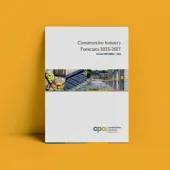Construction to boost UK economic growth

Industry trade association says construction set to enjoy growth over the next four years
THE Construction Products Association is anticipating growth of 19.0% for the £111 billion construction industry by 2017. This is an upward revision from the summer, reflecting an increase in activity, which will boost UK GDP by an additional £20 billion.
Noble Francis, the Association’s economics director, commented: ‘Construction is set to enjoy growth over the next four years as it recovers from its worst recession in more than 35 years. This is mainly due to private housing, which is experiencing a rapid rise, and infrastructure, which is seeing a more gradual return to positive territory.
‘The private housing sector is being driven by recovery in the wider economy and the impacts of policies such as Help to Buy, which have driven both house prices and house building. This is expected to lead to private house starts increasing by 19.0% in 2013 and 15.0% in 2014, albeit from historic low levels of house building.
‘Although rapid growth is predicted over the next 18 months, uncertainty remains around what will happen when these policies end, given that the housing market is unlikely to be self-sustaining by then.’
Mr Francis continued: ‘The infrastructure sector is recovering from a very difficult 2012 when output fell 12.7% despite numerous government announcements of ‘boosts’ to the sector. Government now appears, however, to be refocusing capital investment towards repairs and renewals. In addition, work on Europe’s largest construction project, Crossrail, is expected to peak over the next 18 months. As a result, growth of 7.4% is forecast in 2014.
‘In the longer-term, the prospects for infrastructure will be reliant upon investment in the replacement of energy capacity across nuclear, offshore wind, gas and shale, all of which remain uncertain. Driven by this investment, we predict the sector will enjoy further growth of 27.9% between 2015 and 2017.
‘Two other sectors figure prominently in our forecasts,’ added Mr Francis. ‘First, work in the largest sector of commercial (offices and retail) remains one-third lower than its high in 2007, and second, public sector construction, which accounts for one-third of total industry output, continues to constrain overall growth.
‘After suffering from an extremely tough market for more than five years, and acting as a drag on UK economic activity, construction is set to grow every year between 2014 and 2017. This should provide a considerable boost to the wider economy,’ he concluded.
Key points in the forecasts include:
- Construction output growth of 2.7% in 2014 and 4.6% in 2015.
- Private housing starts to rise 19.0% in 2013 and 15.0% in 2014.
- Public education to fall 14.0% this year.
- Rail infrastructure to rise 34.0% by 2017.
- Energy infrastructure to rise 99.0% by 2017.
- Public sector education and health projects to fall 11.0% in 2013 and 2.4% in 2014.









